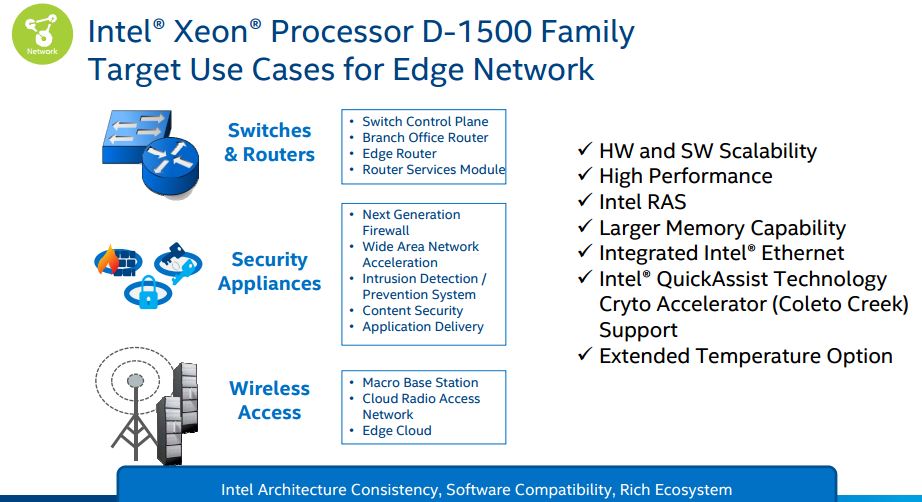We previously reported that Intel launched 8 Intel Xeon D-1500 processors today. We also can confirm that several of the new SoCs (D-15×8) have embedded acceleration technology for the networking segment. We have been using QuickAssist enabled Atom C2x58 processors to serve STH and its family of sites for two years now. At the Broadwell-DE launch back in March 2015 we reported that Intel would be releasing SKUs focused on these markets with specific accelerators on the SoC. Today we have release and a bit more detail.
Networking Optimized SKUs
If you are reading this post, it is most likely that some part of this page is being served through a firewall with an Intel Atom C2x58 based SoC. The C25x8 was a notable departure from the C2x50 SKU in that it included QuickAssist technology. QuickAssist has been supported via OpenSSL for some time now. That makes serving HTTPS requests faster and has also been implemented in firewall suites like pfSense to accelerate OpenVPN VPN connections. One can see the impact of the new Xeon D networking SKUs. Here is the Intel slide on the optimizations and applications targeted:
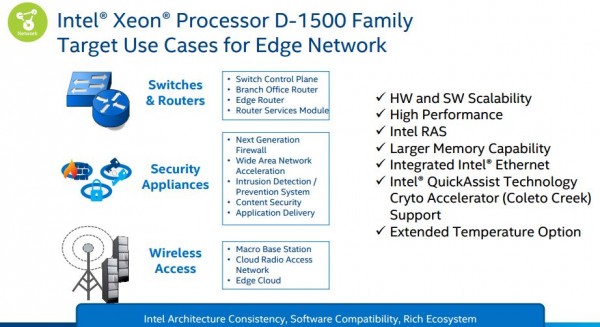
Many of the SDN switches compatible with Big Switch and Cumulus Networks software have options to use Intel Atom C2x58 based processors for their control planes. We would expect these chips to find their way into next-generation switches.
One can see that Intel is claiming major increases in performance using DPDK and other technologies compared to the Intel Atom C2758 which was the high-end Atom C2000 networking SKU released in September 2013.
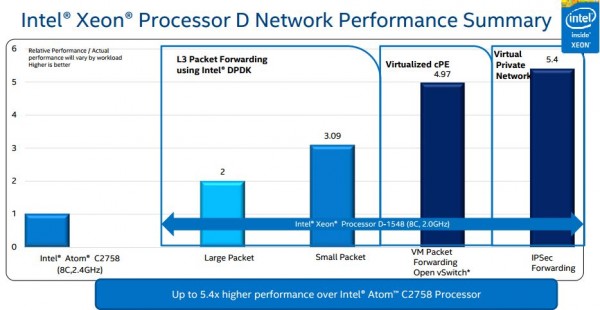
Looking at DPDK, one can see that the L3 packet forwarding rates have increased by 2x-3x according to Intel with this new generation of chips. With embedded 10Gbase-T (Intel X557) networking we can see why Intel is pushing performance.
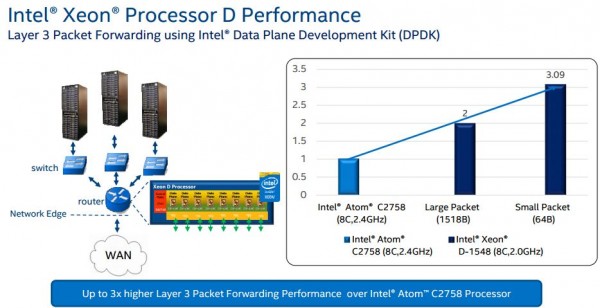
Intel also showed increases to VPN appliances with the new chips using its software stack:
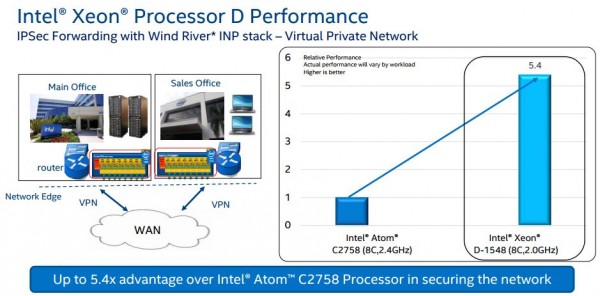
The Intel Atom C2758 and C2558 actually performed very well in terms of general purpose WAN connectivity between offices. It appears as though the next-generation Intel Xeon D-15×8 networking parts will have a similar impact on performance, if not even greater with their support for DPDK.
The impact for SSL terminating proxies (e.g. HAproxy), OpenVPN and IPSec VPNs and other common applications are perhaps more exciting than when the Rangely C2x58 series was launched. DPDK is the technology we are looking at to start seeing major gains moving forward especially given the Intel Xeon D’s integrated 10Gbase-T Ethernet controller. The X557 controller found on the Intel Xeon D can now be found on standalone Intel X550-AT2and X550-BT2. We expect this will mean better support for the onboard networking of Broadwell-DE moving forward.

